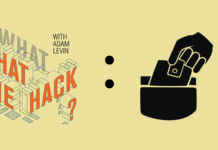True or False: The time for IRS-related swindles and scams is behind us — until next tax season. If you’re still reading this, you probably guessed “false.” And yep, it’s sad but true: Those pesky swindlers are still at it.
Normally, when summer arrives with its parade of warm days and fewer demands on our attention, there is a quiet month or so when very little happens in the way of IRS-related activities (quarterly payments being the only thing you might expect on a list of tax-related things to do). So, you should be safe from the current scam making the rounds — but you’re not. The IRS recently issued a warning about a scam that’s been luring summertime tax-fraud victims.
You know never to respond to a phone call from the IRS, because — say it with me — they never call. (The agency does have debt collectors representing them now, but you’ll receive several notices before they call you and you can expect to be contacted by one of four firms —CBE Group, ConServe, Performant and Pioneer Credit Recovery — not an IRS agent, more on this below.) Well, this latest scam put a saddle on that old nag and has been taking taxpayers for a ride.
Here’s how: You get a call from the IRS telling you about official correspondence sent via snail mail — certified mail, no less. The letters were returned to the IRS as undeliverable. They tried to mail you the notice you needed. They have to call you.
So, what do you do? Hang up.
The thing about these scams is that they always have the ring of truth to them. (Remember, con man is short for confidence man.) If you stay on the phone, you will be informed that there was an issue with your tax return and you owe money that is extremely late in getting where it’s supposed to be. You have to pay with a card that is connected with the Electronic Federal Tax Payment System (EFTPS). Sounds legitimate, because the EFTPS is one of the ways you can pay your taxes. That said, you can’t do it with a gift card or any other kind of prepaid card, which is what the scam requires to pay out the fraudster. (You can also pay taxes with credit cards, which you can learn about here.)
The IRS never calls to bird-dog money, although there is one new exception. Congress has mandated that the IRS hire collection agencies to chase certain extremely delinquent taxpayers. If you receive such a call, get off the phone and contact the IRS directly to verify the situation.
Also bear in mind that taxpayers who owe the IRS money generally know it. They have received multiple notices, did not dispute the assessments and/or did not make the payments. If you get a surprise call asking for money, be doubtful. (You can see how unpaid taxes are impacting your credit by viewing two of your credit scores for free on Credit.com.)
Can You Scam-Proof Yourself?
In this particular instance, you actually can avoid getting got 100% of the time. It’s pretty simple: Simply hang up. But there is no way to absolutely scam-proof yourself.
There are more ways to get burned by tax scams than you can shake a beach umbrella at — bogus tax preparers, scam artists who file a tax return using your identity and steal the refund, sleazeballs who promise huge tax refunds for an extra fee, which is nothing compared to the penalty you will pay after the IRS audits you.
My book Swiped: How to Protect Yourself in a World Full of Scammers, Phishers, and Identity Thieves provides countless stories about how cyber criminals lure victims, but the best way to stay safe is to do what you’re doing now: Stay aware.










